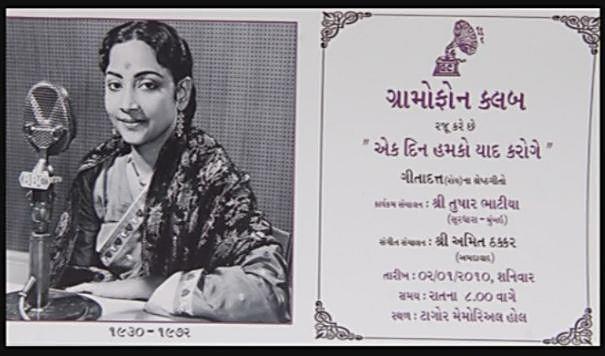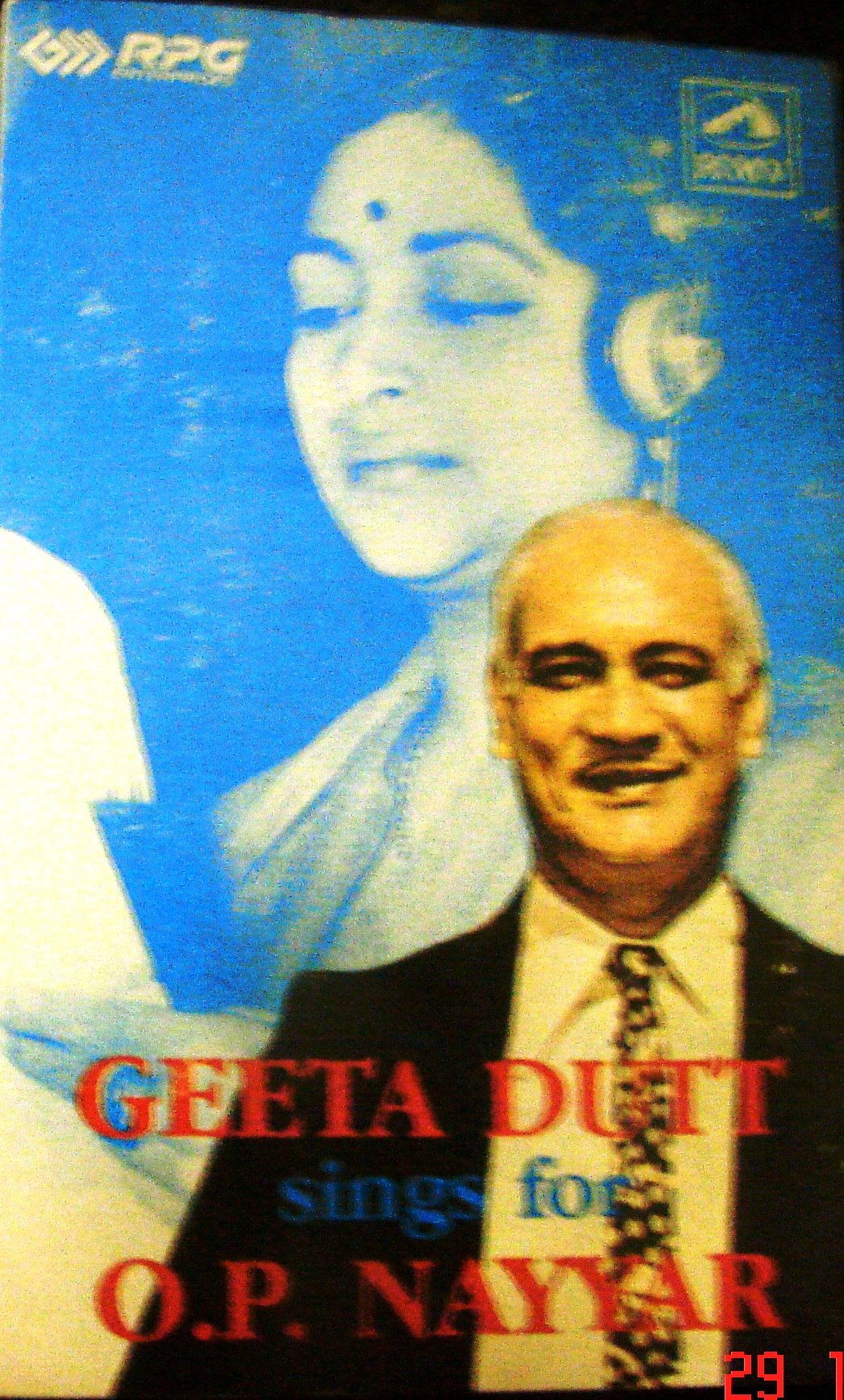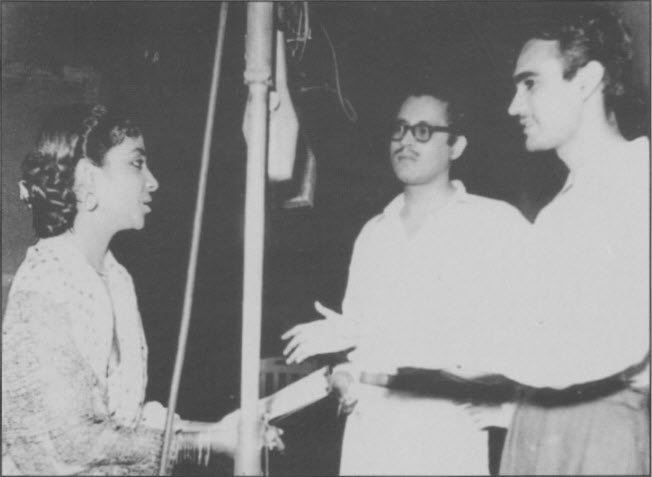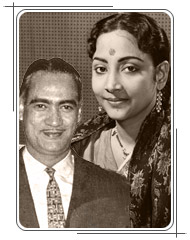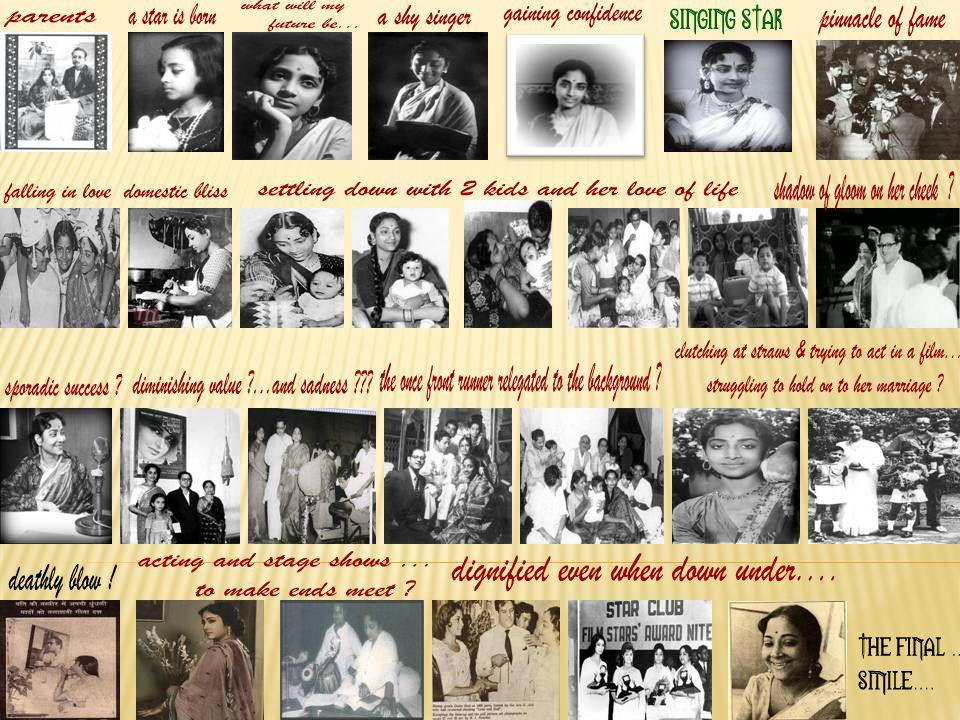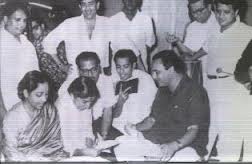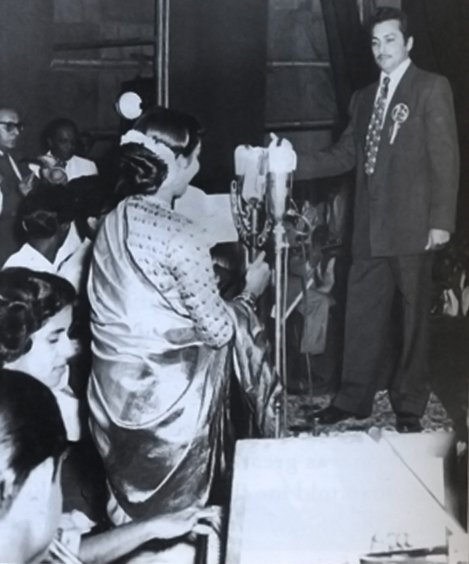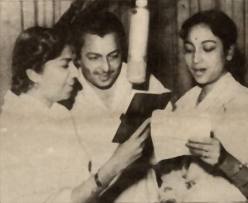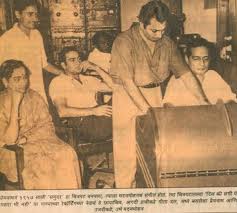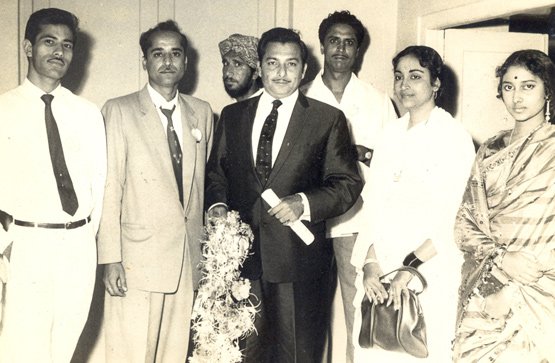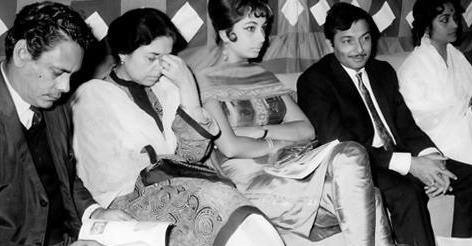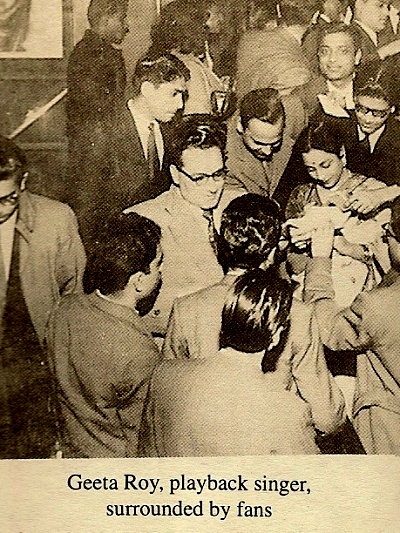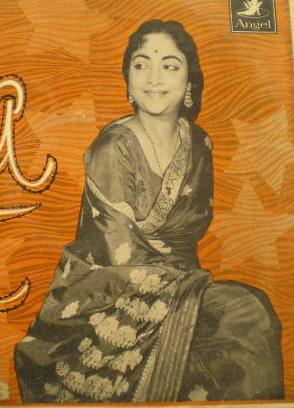
“HUMBLE TRIBUTES TO MY FAVOURITE PLAYBACK SINGER WITH A DIFFERENCE…! GEETA DUTT JI……!”
Playback Singer Geeta Dutt Ji held a rare mellifluous Tone in her magical voice that could ignite Passion and Emotions into every Music Lover’s Heart at any point of time. Her exclusive versatility also enabled her to swap songs from Traditional to Western Tunes without even skipping a rhythm or a tune truly imbibed in her natural talent. When the new Queen of Melody Lata Mangeshkar Ji arrived in the Indian Music scene then, it was Geeta Ji’s reining fluidity in her supreme sweet voice that kept her still popular in the Playback Industry. Geeta ji’s command in the studios would have sustained for the rest of her life had it had not been for her troubled personal life. I would like to focus on her musical talents instead.
The epic song “Yaad Karoge, Ek Din Humko Yaad Karoge” from “Do Bhai” couldn’t have been more apt for anyone than the Playback Singer herself — Geeta Dutt Ji.
Even till her 41st Death Anniversary on the 20th July this year, her exceptional melodious voice that immortalized songs like “Waqt ne Kiya”, “Babuji Dheere Chal Na”, “Jaane Kya Tune Kahi” & the Rocking “Mera Naam Chin Chin Choo” still continues to enthrall Music Lovers all over the globe. Many of her songs have been Re-Mixed today to become huge chartbusters entertaining the younger generation till date.
Geeta Ji was one of Ten children born to a rich Bengali Zamindar, Shri Debendranath Ghosh Roy Chowdhary and his wife Amiya Devi, at Faridpur, Bangladesh in 1930. In the year 1942, at the age of twelve, having shifted over to an apartment at Dadar, Mumbai, she was overheard by Music Director Pandit Hanuman Prasad, passionately singing in her Balcony. He was bowled over and totally impressed with her amazing talent, and thus decided to train her to make her sing a couple of lines in her debut mythological film “Bhakt Prahlad”. With recent discoveries, we have found that she did sing a couple of songs for the film Adhaar in the year 1945 itself. So it is now unclear who gave the first break to her as a playback singer.
During the initial stages of her career, Geeta Ji it is wrongly believed that she was considered only for Devotional songs. Even though her songs written by “Meera Bai” from the film ‘Jogan”, “Ghunghat Ke Pat Khol Re, Tohe Piya Milenge” & “Main Toh Girdhar Ke Ghar Jaaungi” were adorable super hits in that period, she did sing a very good number of happy and romantic songs in that period.
From 1947 till 1949, Geeta Ji remained the Queen of Playback Singing, moving from strength to strength. On the release of Baazi (1951), a crime thriller which featured Jazz-based songs, a sensual side was instantly revealed in her voice, which instantly became a hit with music crazy listeners and with all the popular Music Directors then. They started composing more rocking & sensuous numbers keep her in mind. Geeta Ji’s versatility was thus showcased to the world disclosing the flexibility in her God gifted voice.
Raju Bharathan, a renowned Music Critic wrote about Geeta Ji in a Filmfare Magazine then, “Geeta Dutt was Thandi Hawa and Kaali Ghata, all rolled into one. She could be Sensual and Sensitive at the same time. From singing 12 solo Bhajans in one movie “Jogan”, she moved on to jazzy Musical scores without a thought, or a break in her voice”, a Grand Tribute to the Playback Singer!
Composers Sachin Dev Burman Saab popularly called as Burmanda, and O.P. Nayyar Saab gave Geeta Ji, their best ever tunes of her career which turned out to be some of her most popular songs. Burmanda who gave her recognition with his jazzy “Baazi” compositions, preferred to use that special lilt and pulse of Geeta Ji’s voice for Traditional Indian melodies too. In fact no other singer apart from Geeta Ji has truly embodied the spirit of Burmanda’s music. Nayyar Saab on the other hand, developed Geeta Ji’s voice more for Westernized songs and under his compositions, Geeta Ji could sing for just about any genre of song.
The 50s was the Golden period of Geeta Ji’s career. She sang some of her biggest hits during this period. “Aaj Sajan Mohe Ang Lagalo, Thandi Hawa Kali Ghata, Ja Ja Ja Ja Bewafa” and her popular duets like Ankhon Hi Ankhon Mein, Jaane Kahan Mera Jigar Gaya Ji, Aan Milo Shyam Saaware” and many more — all belonging to this period. In fact so popular was Geeta Ji’s style of singing that Music Directors then used to ask the new Playback Singer Asha Bhosle Ji to adapt Geeta Ji’s flair and approach.”
Many of Geeta Ji’s songs of that era have been Remixed recently. “Tadbeer Se Bigdi Hui Taqdeer Bana Le” was used in Abhishek Bachchan’s film “Bluffmaster”. The Remix version of “Yeh Lo Main Hari Piya” from the film “Aar Paar” is immensely popular and has literally floored the new generation kids.
Film “Baazi” that added a fresh buzz to Geeta Ji’s professional career, also brought good news on the personal front. During the shoot of this movie she met then-upcoming Director Guru Dutt Saab. The couple fell in love and got married on May 26th, 1953 and thus Geeta Roy became Geeta Dutt.
With husband Guru Dutt Saab’s untimely demise in 1964, Geeta Ji unfortunately suffered a nervous breakdown. It is said when she recovered, she realized her place in the Studios was replaced by other Singers. She attempted to revive her career by cutting discs during Durga Puja Festivals and performing stage concerts but her career did take a plunge, far from recovery. However she fought her way back, delivering a stunning performance in the film “Anubhav” (1971), which also turned out to be her last performance. She ultimately succumbed to the dreadful disease, Cirrhosis of Liver and passed away on July 20th, 1972. But even after her death, her voice still rings with that special memorizing lilt…!
It is such an irony that one of her most popular melodies so truly symbolized the story of her entire career. “MERA SUNDER SAPNA BEET GAYA, MAIN PREM MEIN SAB KUCH HAAR GAYEE, BEDARD ZAMAANA BEET GAYA, MERA SUNDER SAPNA BEET GAYA”…..!!
MY HUMBLE TRIBUTES AND PRANAMS TO GEETA DUTT JI ON HER DEATH ANNIVERSARY TODAY. SHE WAS AN ARTISTE WHO INSPIRED AND BECAME AN IDOL FOR SUBSEQUENT LEGENDS AND A ROLE MODEL FOR ASPIRING ARTISTES FROM EVERY GENERATION TILL DATE.
Acknowledgements:
We are grateful to our dear friend Shri Gautam Dey ji for this wonderful write-up on Geeta ji as a tribute to her.
